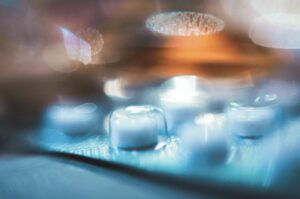From CounterPunch: “Researchers have long known that any single antidepressant drug is little more effective than a placebo in the majority of trials, shown to be less effective than a placebo in some studies, and generally found to be ‘clinically negligible’ with respect to depression remission, while often resulting in severe adverse effects; for example, resulting in a higher percentage of sexual dysfunction than depression remission. However, for nearly twenty years, psychiatry and Big Pharma have told us that while one antidepressant may not work for the majority of patients, in the ‘real world,’ doctors provide patients who have been failed by their initial antidepressant with another antidepressant, and if that fails, still another; and that this real-world treatment is successful for nearly 70% of patients. This narrative has been repeatedly reported by the mainstream media, including the New York Times in 2022.
The problem with this ‘nearly 70%’ story is that the research that has been used to justify it, a 2006 report on the results of the Sequenced Treatment Alternatives to Relieve Depression (STAR*D), has long been disputed by researchers. Moreover, a recent reanalysis of previously undisclosed data reveals that STAR*D, owing to scientific misconduct that dramatically inflated remission rates, may go down in US medical history as one of its most harmful scandals. Among the few journalists in the world who have recognized the implications of STAR*D for the treatment of millions of people is Robert Whitaker, and in his September 2023 report, ‘The STAR*D Scandal: Scientific Misconduct on a Grand Scale,’ he stated: ‘The protocol violations and publication of a fabricated “principal outcome”—the 67% cumulative remission rate—are evidence of scientific misconduct that rises to the level of fraud.'”

***
Back to Around the Web











